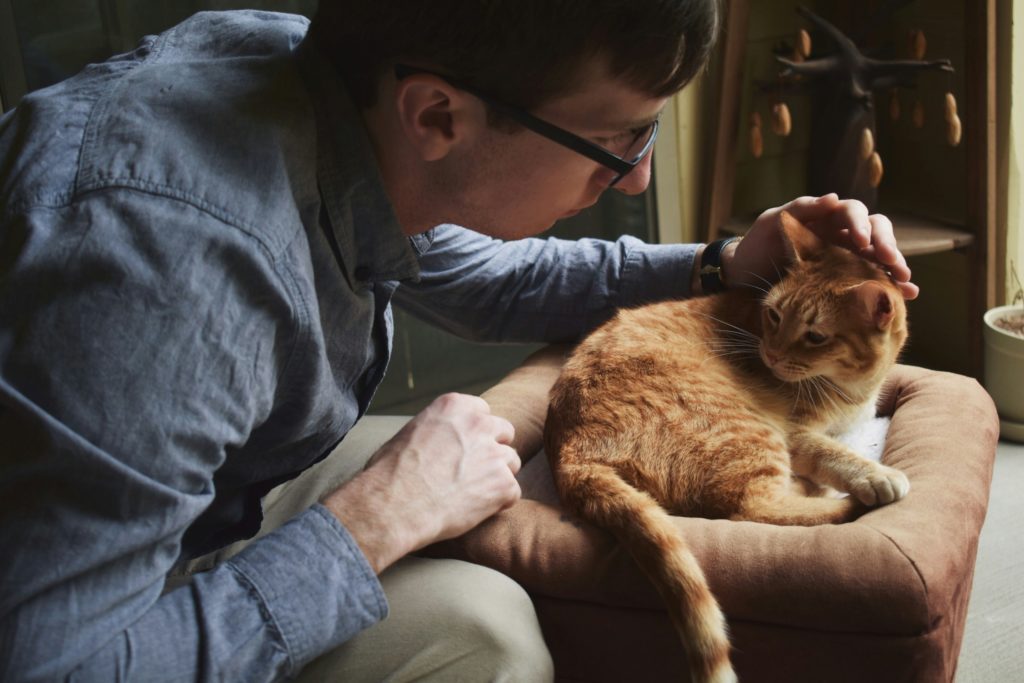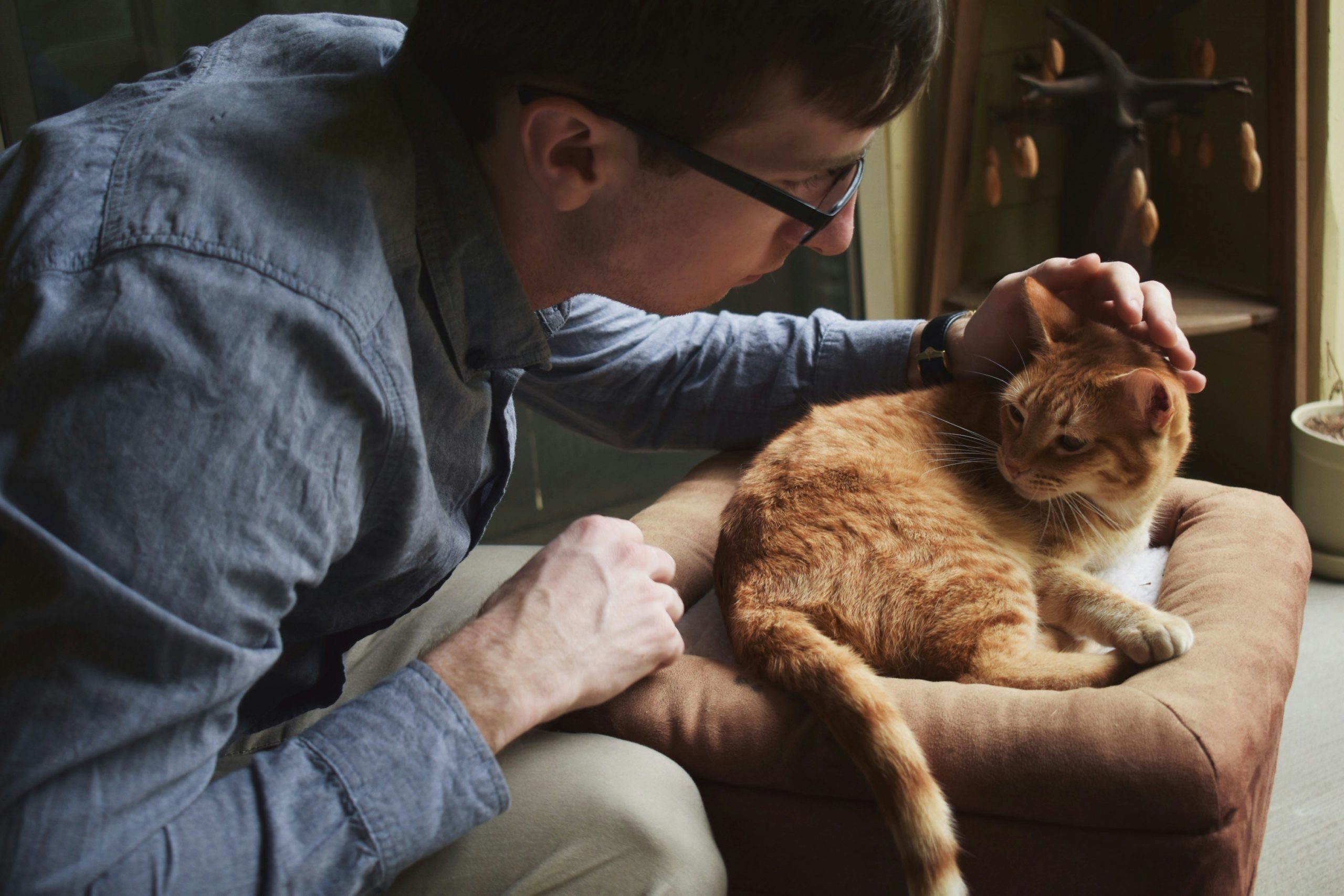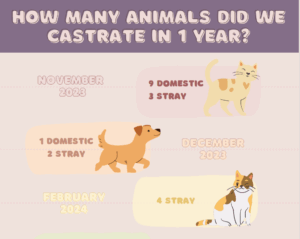Information Campaign of Stray Love Foundation, together with Kostenets Municipality – 01.03. – 31.12.24.

In which cases is it advisable to neuter your pet?
The animal:
- has reached sexual maturity
- is free to roam outside the home or yard and has a chance of mating with another animal, resulting in unwanted offspring
- is in good general health
- is not too old
- has a habit of running away and missing for long periods
- frequently gets into serious conflicts with animals of the same sex
Arguments in favour of castration:
- This way you are part of the solution to the problem of homeless animals on the streets. By comprehensively neutering dog and cat populations, whether stray or domestic, the chance of increasing stray populations is dramatically reduced.
- This is the best method of birth control and preventing unwanted pregnancies. All other methods involve hormonal preparations that have serious negative effects on animal health, the most common effect being mammary cancer.
- The Municipality of Kostenets organises neutering of stray dogs in implementation of the Programme for the control of the stray dog population on the territory of the municipality adopted by the Municipal Council of Kostenets. If necessary, citizens can submit written signals to the municipality with the necessary information.
- The Love Without a Home Foundation provides free neutering of domestic and street dogs and cats, after a preliminary request and a waiting list condition, which can take up to several months. Domestic animals are microchipped and the animal is registered with the Bulgarian Food Safety Agency in the owner’s name as required by law.
- After castration, the production of certain hormones is reduced in castrated animals. They therefore become calmer and more manageable. Behaviours associated with the need to produce offspring disappear in them.
Neutering a pet – what is it?
Neutering a pet ranks among the routine surgical interventions performed on animal species, in which their reproductive organs are removed. In male species, the testicles are removed and in female species, the ovaries and uterus are removed. The intervention is carried out under full anaesthesia by a veterinarian on the premises of a professional veterinary clinic.
As with any medical intervention, neutering poses a risk to the animal’s life. It can be minimized by:
- being done by a capable veterinarian
- quality medical preparations are used
- performed in the sterile environment of a veterinary clinic
- properly assessing the animal’s state of health


